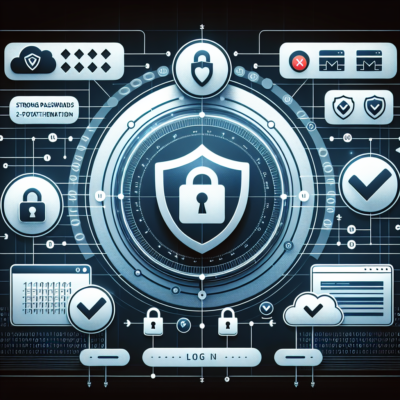
The Ultimate Guide to WordPress Security
WordPress is one of the most popular content management systems globally, powering millions of websites. However, its popularity also makes it a prime target for hackers. It’s crucial to ensure your WordPress site is secure to protect your data and your users.
Regular Updates
Keeping your WordPress site updated is essential. This includes updating the WordPress core, themes, and plugins. Outdated software can have vulnerabilities that hackers exploit. Enable automatic updates when possible and always backup your site before performing updates.
Strong Passwords and User Roles
Use strong passwords and change them regularly. Passwords should be a combination of letters, numbers, and special characters. Limit the number of users with administrative privileges and assign appropriate user roles to the rest. This minimizes the risk of unauthorized access.
Two-Factor Authentication
Implementing two-factor authentication (2FA) provides an extra layer of security. Even if a password is compromised, 2FA ensures that an additional verification step is required to access the site. Various plugins are available to help you set up 2FA on your WordPress site.
Security Plugins
Many security plugins are available to enhance the security of your WordPress site. These plugins offer features like malware scanning, firewalls, and brute force attack protection. Some popular security plugins include Wordfence, Sucuri, and iThemes Security.
Backing Up Your Site
Regular backups are vital for WordPress security. In case of a security breach or data loss, having a recent backup allows you to restore your site quickly. Use reliable backup plugins like UpdraftPlus or BackupBuddy and store backups in a secure, off-site location.
Secure Hosting
Choose a reputable hosting provider with strong security measures in place. Good hosting companies offer features like SSL certificates, firewalls, and regular security audits. They also provide support if your site is compromised.
Limit Login Attempts
Limit the number of login attempts to protect against brute force attacks. By restricting the number of login attempts, you can block malicious users from repeatedly trying to guess passwords. Plugins like Login LockDown can help enforce this.
Monitor Your Site
Regularly monitor your WordPress site for any suspicious activity. Check your site logs, look for unexpected changes, and be aware of any unusual site behavior. Early detection of security issues can prevent significant damage.
Conclusion
WordPress security should never be an afterthought. By following the guidelines above, you can significantly enhance the security of your WordPress site. Regular updates, strong passwords, two-factor authentication, and reliable security plugins are just a few steps to protect your site and its users.